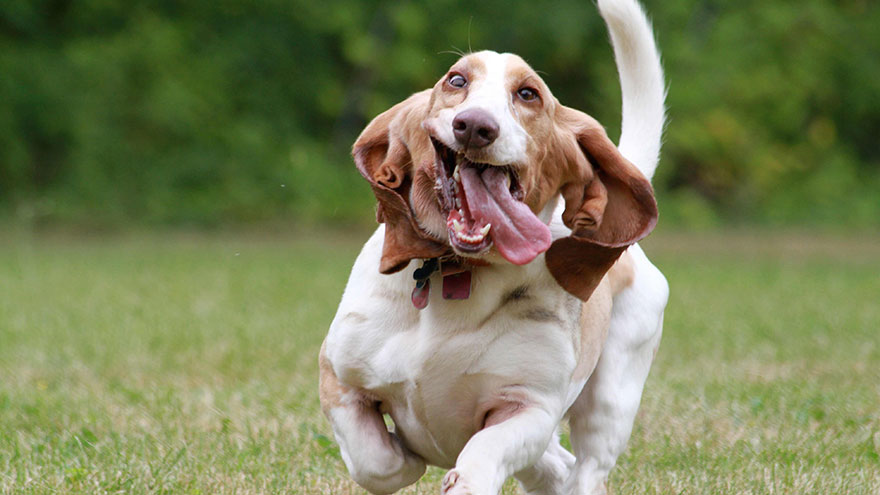Problems With Basset Hounds
Problems with basset hounds — those lovable long-eared, short-legged rabbit hunters — revolve primarily around health and training.

Basset Hound Personality
The American Kennel Club describes the basset hound as “charming, low-key and patient,” adding that “lazy” is another descriptive term. “Active” is not a word used to describe the breed, and that’s a problem if you want a companion for biking, jogging and similar activities.
If you’re more of a couch potato, the basset hound is a fine canine choice. He’s also good with kids.
Training Problems
Basset hounds aren’t the easiest dogs to train. They are hounds, after all, and were bred to track game in packs, not to obey one person’s direction. Have patience and housebreaking and other basic training will occur eventually
When training a basset hound, a food reward can work wonders. Just don’t give him so many rewards that he becomes obese, a common problem in the breed.
Ear Infections
The breed’s long ears are the reason they often suffer from otitis, or ear infections. If your dog is constantly scratching at his ears, they smell bad or have a discharge, otitis is the likely culprit. Your vet will clean the dog’s ears and prescribe antibiotics to combat infection. In severe cases, surgery may be necessary.
RELATED :: Basset Hound Breed Information
Bleeding Disorders
Basset hounds are prone to certain genetic bleeding disorders. These include thrombopathia, which causes platelet clotting defects in affected dogs, resulting in frequent bleeding episodes. Suspect thrombopathia if your pet bleeds from his mouth, nose or urinary tract, or eliminates dark, tarry feces — a symptom of gastrointestinal bleeding. He also may bleed excessively from minor injuries or surgery, or frequently develop hematomas in his ear flap.
Basset hounds also may inherit von Willebrand’s disease, a form of canine hemophilia. There’s no cure for either condition, but careful management and avoidance of rough play can decrease the number of episodes your dog experiences.
Basset hounds with any hereditary diseases should not be bred.
Eye Issues
The deep brown eyes of the basset hound are plagued by a variety of issues. These include:
- Glaucoma.
- Entropion.
- Prolapsed gland of the third eyelid, better known as “cherry eye.”
Orthopedic Problems
Like other long-backed breeds, basset hounds often develop intervertebral disc disease, which can cause paralysis. Surgery is often necessary. Other orthopedic problems affecting the breed include hip and elbow dysplasia and slipped kneecaps.
It helps to be proactive and take your long-backed basset to a canine chiropractor for regular adjusting. Young basset hounds may exhibit signs of panosteotitis, an off-and-on lameness. This can mimic other orthopedic problems in basset hounds, so consult a veterinarian experienced with the breed.
Gastric Torsion
As a deep-chested breed, the basset hound is liable to experience bloat, formally known as gastric torsion. This condition is fatal without surgery. It appears out of nowhere, and the dog stomach can twist, causing loss of blood flow and tissue death.
If your basset hound’s stomach is distended, and he looks like he’s trying to throw up with no results, get him to an emergency veterinary hospital immediately. Dividing his daily ration into several small meals rather than a single feeding can help prevent bloat.
You Might Also Like :: Basset Hound Health Guide

